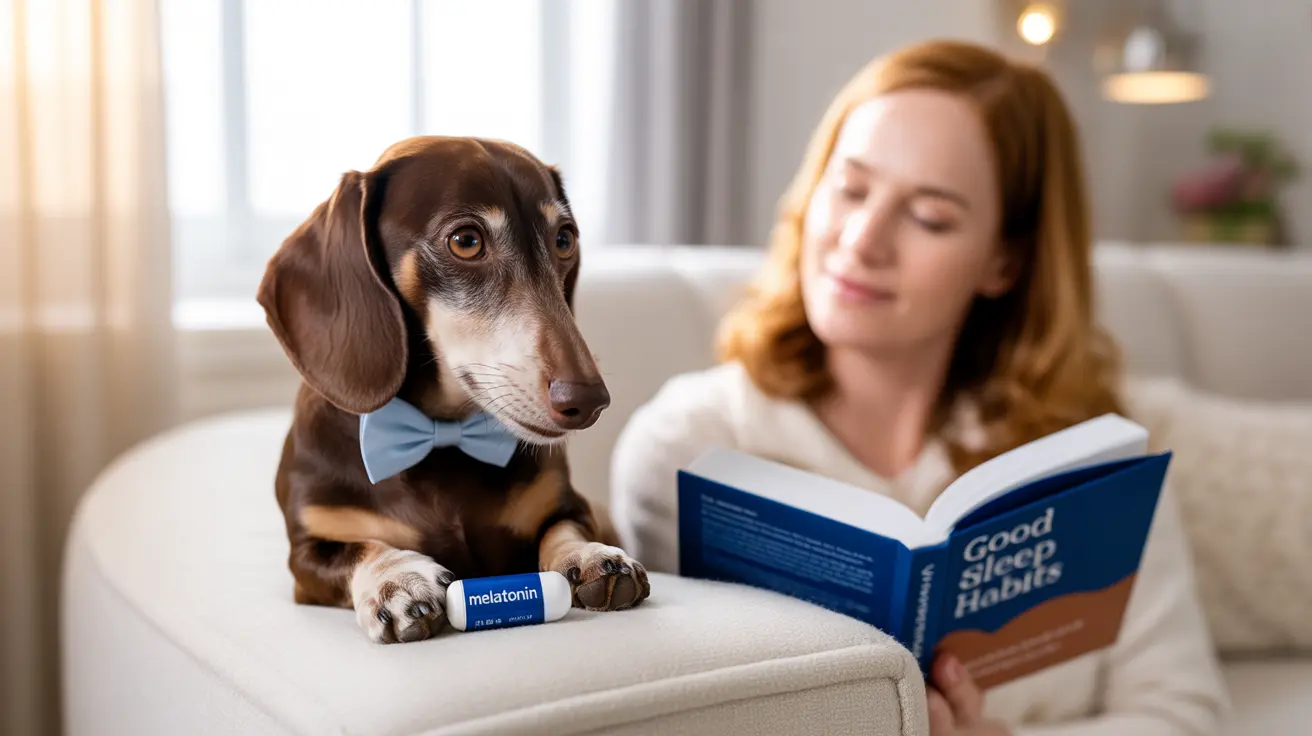If you're considering giving melatonin to your dog, you're not alone. This naturally occurring hormone supplement has gained popularity among pet owners for its potential benefits in managing canine anxiety, sleep issues, and various health conditions. But before reaching for that bottle of melatonin, it's crucial to understand the facts about its safety, proper dosing, and appropriate uses for dogs.
In this comprehensive guide, we'll explore everything you need to know about giving melatonin to dogs, including safety considerations, proper dosages, and potential benefits. We'll also discuss important precautions and when to consult with your veterinarian.
Understanding Melatonin and Its Effects on Dogs
Melatonin is a hormone naturally produced by the pineal gland in both humans and dogs. It plays a crucial role in regulating sleep-wake cycles and various other biological functions. When given as a supplement, melatonin can help address several common canine health concerns.
Benefits of Melatonin for Dogs
Melatonin offers several potential benefits for dogs when used appropriately:
- Sleep regulation for dogs with disrupted sleep patterns
- Anxiety relief, especially during thunderstorms or fireworks
- Management of seasonal alopecia (hair loss)
- Support for dogs with Cushing's disease
- Calming effects for separation anxiety
- Potential aid in managing seizure disorders
Safe Dosing Guidelines for Dogs
Proper dosing is crucial when giving melatonin to dogs. The general guidelines based on weight are:
- Dogs under 10 lbs: 1 mg
- Dogs 10-25 lbs: 1.5 mg
- Dogs 26-50 lbs: 2-3 mg
- Dogs 51-100 lbs: 3 mg
- Dogs over 100 lbs: 3-6 mg
Always start with the lowest recommended dose and monitor your dog's response before making any adjustments. Timing is also important - melatonin typically takes effect within 15-30 minutes and lasts for about 8 hours.
Important Safety Considerations
While melatonin is generally considered safe for dogs, there are several important precautions to keep in mind:
- Always consult with your veterinarian before starting melatonin
- Choose products free from xylitol and other harmful additives
- Monitor for potential side effects
- Avoid use in pregnant dogs and puppies under 12 weeks
- Be aware of possible drug interactions with other medications
When to Avoid Melatonin
Some dogs should not take melatonin, including:
- Diabetic dogs
- Pregnant or nursing dogs
- Dogs with autoimmune disorders
- Puppies under 12 weeks of age
- Dogs with liver or kidney problems
Frequently Asked Questions
Can dogs take melatonin safely, and what are the recommended dosages?
Yes, dogs can safely take melatonin when properly dosed according to their weight. Always consult with your veterinarian for specific dosing recommendations, as individual needs may vary based on health conditions and other factors.
What are the most common uses of melatonin for dogs, and can it help with anxiety?
Melatonin is commonly used to help with anxiety, sleep disorders, seasonal alopecia, and Cushing's disease in dogs. It can be particularly effective for anxiety related to thunderstorms, fireworks, and separation issues.
How quickly does melatonin start working in dogs, and how long does it last?
Melatonin typically begins working within 15-30 minutes of administration and its effects can last for approximately 8 hours in most dogs.
Are there any potential side effects or risks associated with giving melatonin to dogs?
While generally safe, potential side effects can include drowsiness, digestive upset, increased heart rate, and itching. Serious side effects are rare but possible, especially with incorrect dosing.
Can I give my dog human melatonin, or should I use a product specifically designed for dogs?
It's best to use veterinary-approved melatonin products specifically designed for dogs. Human products may contain harmful additives like xylitol or inappropriate dosages for pets.
Conclusion
Melatonin can be a valuable supplement for dogs when used appropriately and under veterinary guidance. While it offers numerous potential benefits for sleep, anxiety, and certain health conditions, proper dosing and careful monitoring are essential for safety and effectiveness. Always consult with your veterinarian before starting your dog on any new supplement regimen.






